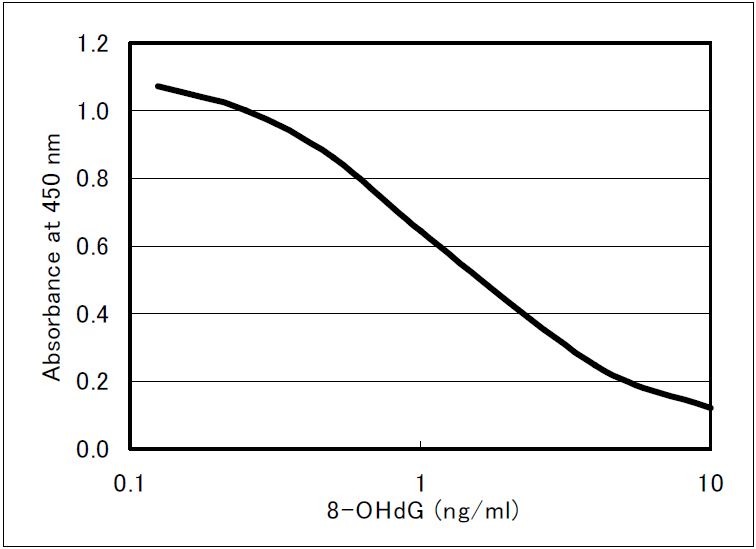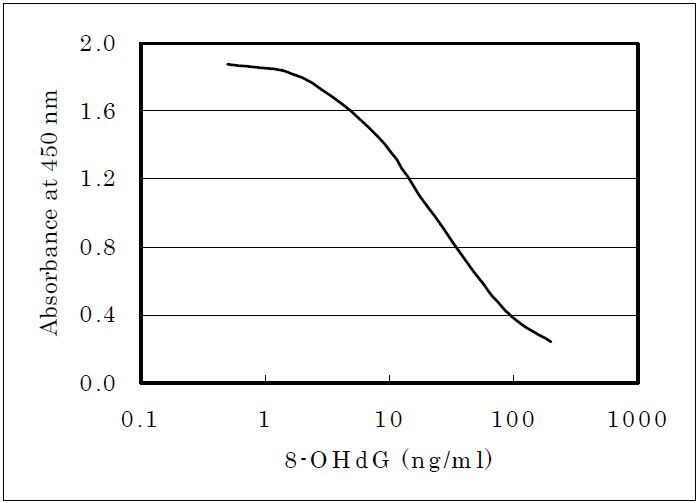
8-OHdG Check ELISA Kit (High Sensitivity)
JAI-KOG-HS10E
ReactivityAll Species
Product group Assays
Overview
- SupplierJaICA
- Product Name8-OHdG Check ELISA Kit (High Sensitivity)
- Delivery Days Customer2
- ApplicationsELISA
- Assay Detection Range0.125 to 10 ng/mL
- CertificationResearch Use Only
- Scientific Description8-hydroxy-2-deoxyguanosine (8-OHdG) is a modified base that occurs in DNA due to attack by hydroxyl radicals (incl. singlet oxygen and direct photodynamic action) that are formed as byproducts and intermediates of aerobic metabolism and during oxidative stress. There is increasing evidence to support the involvement of free radical reactions in the damage of biomolecules that eventually lead to several diseases in humans, such as atherosclerosis, cerebral and heart ischemia-reperfusion injury, cancer, rheumatoid arthritis, inflammation, diabetes, aging, and neurodegenerative conditions, such as Alzheimers disease. 8-OHdG is popular as a sensitive, stable and integral marker of oxidative damage in cellular DNA and can be detected in tissue, serum, urine and other biomaterials. - Kit. Specific for 8-OHdG. Has been tested to 8-OHdG analogues (guanosine(G),7-methyl-G, 6-SH-G, 8-Bromo-G, dA, dC, dT, dI, dU, dG, O6-methyl-dG,8-OHdA, guanine(Gua),O6-methyl-Gua, 8-OH-Gua, uric acid, urea, creatine, creatinine, 8-sulfhydryl-G, 8-OH-G). Range: 0.125 to 10 ng/mL. 8-hydroxy-2-deoxyguanosine (8-OHdG) is a modified base that occurs in DNA due to attack by hydroxyl radicals (incl. singlet oxygen and direct photodynamic action) that are formed as byproducts and intermediates of aerobic metabolism and during oxidative stress. There is increasing evidence to support the involvement of free radical reactions in the damage of biomolecules that eventually lead to several diseases in humans, such as atherosclerosis, cerebral and heart ischemia-reperfusion injury, cancer, rheumatoid arthritis, inflammation, diabetes, aging, and neurodegenerative conditions, such as Alzheimers disease. 8-OHdG is popular as a sensitive, stable and integral marker of oxidative damage in cellular DNA and can be detected in tissue, serum, urine and other biomaterials. This ELISA Kits works also for DNA extracted from cultured cells or tissues.
- ReactivityAll Species
- Storage Instruction2°C to 8°C
- UNSPSC41116100


